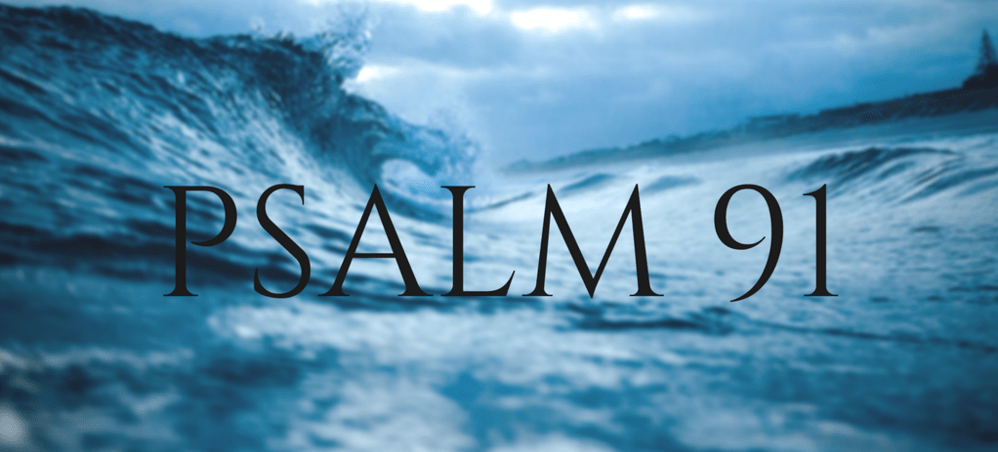The sheer amount of God’s promises overwhelms me. In this last section of psalm 91, God makes eight promises in one paragraph! He pledges to deliver, to protect, to answer, to be with us, to rescue and honor us, to satisfy and show us his salvation. God’s love moves him to joyfully commit to lavish and unbelievable promises!
Psalm 91:14-16 New International Version (NIV)
14 “Because he[a loves me,” says the Lord, “I will rescue him;
I will protect him, for he acknowledges my name.
15 He will call on me, and I will answer him;
I will be with him in trouble,
I will deliver him and honor him.
16 With long life I will satisfy him
and show him my salvation.”
God offers all these promises to us if we do three little things: I must hold fast to him in love, know his name, and call to him in trouble. I take this to mean when I know God in the fullness of all His amazing ways, I will then love him with a steadfast love. And my complete dependence on His love causes us to have a deep cry for salvation. He gets the praise, I get the freedom. He gets the glory, I get the rescue!
Do not think that knowing him, holding fast and calling on him still works we must contribute to our salvation, as works. These are necessary works God both requires and supplies! We only contribute what He has already given.
We know him only because He knew us first and enabled our knowing Him. “Formerly, when you did not know God, you were enslaved to those that by nature are not gods. But now that you have come to know God, or rather to be known by God,” (Galatians 4:8-9). We know God because He knew us first and that empowers our knowing Him.
We hold fast in love, not by our strength or virtue, but because He holds fast to us. We call upon him because He has called us first. “To those sanctified in Christ Jesus, called to be saints together with all those who in every place call upon the name of our Lord Jesus Christ, both their Lord and ours” (1 Corinthians 1:2). We only call on Him for salvation because the Holy Spirit convicted us to do so.
These promises in psalm 91 are made to the one who trusts in God: “I will say to the LORD, ‘My refuge and my fortress, my God, in whom I trust’” (Psalm 91:2). As you trust in Him, you will know Him more clearly, love Him more deeply, and call on Him more freely. The root of every good fruit is trust in God.
Why did Satan seek to tempt Christ with verses 11-12 of this Psalm? Because he knew that Jesus Christ is God. Christ’s refusal to put His Father to the test shows His obedience is perfect; so should we strive to be, if we are in Him.
Know God then, in the face of Christ, because in Christ you are fully known. Hold fast in love to Christ because it is God’s love in Christ which holds you fast. Call upon the name of the Lord Jesus Christ, for in Christ you have been called.

